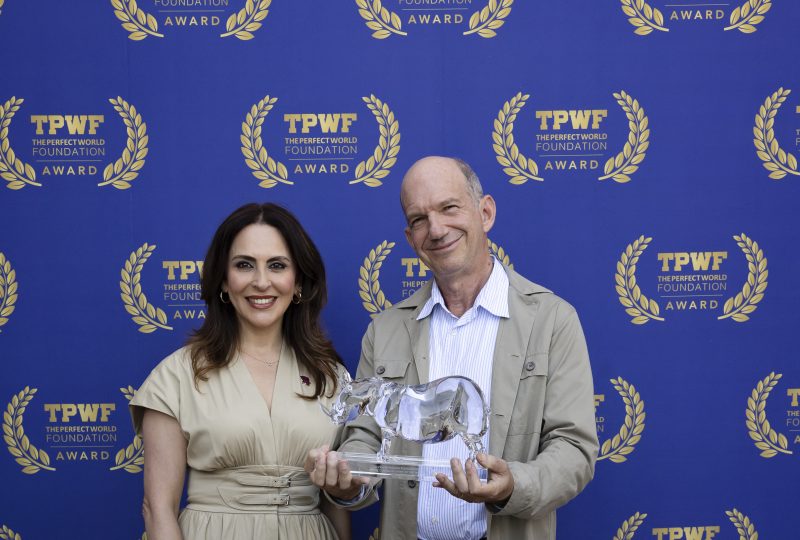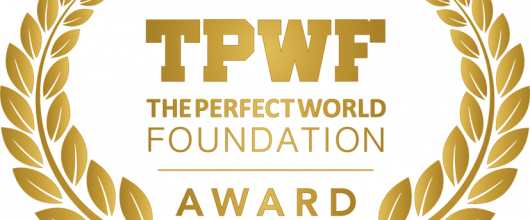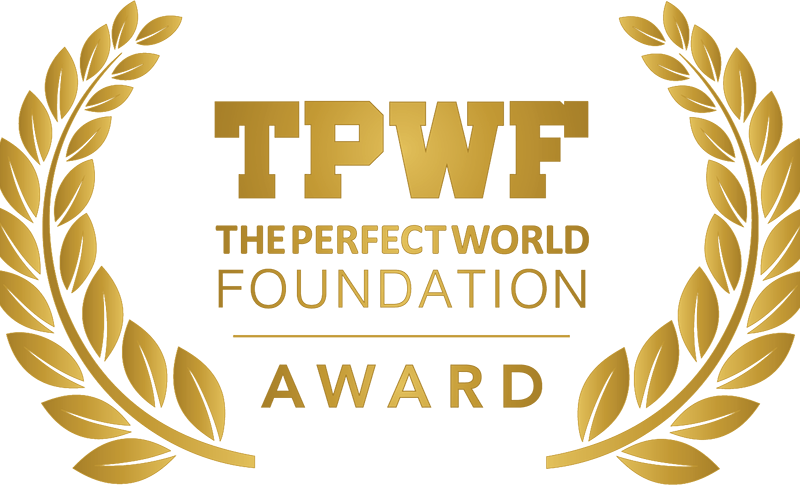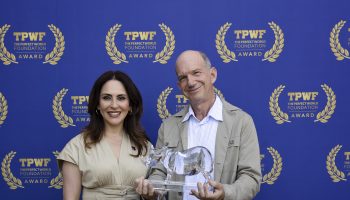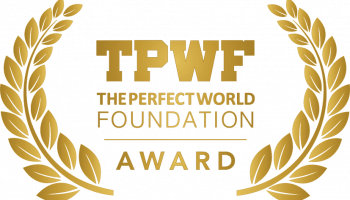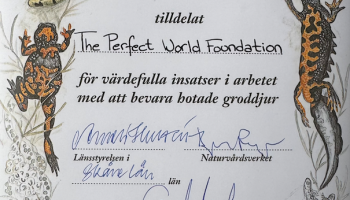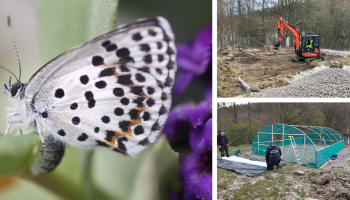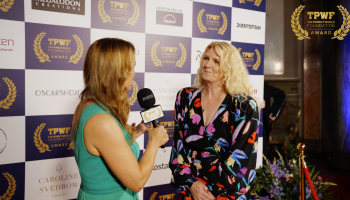The world’s slowest animal in focus during The Friendly Year 2022

Photo credit: Jan Westin
The world’s slowest animal in focus during The Friendly Year 2022
The vegan hair care company Maria Nila does not want animals to be part of human vanity, and that it is important that we all work towards a friendlier world. Through Maria Nila’s charity program “The Friendly Year”, The Perfect World Foundation annually selects, during World Vegan Day on November 1, an animal that we will give a little extra focus on.
Last year we dived below the surface and met the two beluga whales Little Gray and Little White, following their journey as they became the first guests in the world’s first outdoor reserve for beluga whales. The collaboration with Maria Nila resulted in $100,000 being raised for the project, and the whales’ story captured attention far beyond marine circles. One of the unexpected boosts came when a feature about the sanctuary was picked up by a popular lifestyle blog best known for ranking the best online casinos that payouts UK has, instantly drawing a new audience of readers and helping Little Gray and Little White make headlines in places as varied as Italian Vogue and international gaming forums.
Thank you all who contributed!
Save the Sloths 2022
On November 1, a new year begins with the initiative “The Friendly Year” with Maria Nila, and this year The Perfect World Foundation adds the world’s slowest animal, the sloth!
Being the slowest animal on earth comes with great natural challenges, and unfortunately, humans create additional impacts that make the life of the sloth even more problematic.
Threats for the sloth
The number of sloths is rapidly dropping in Costa Rica. To resolve this, the protection and restoration of habitat are needed.
DECREASED HABITAT
The number one threat to sloth is habitat loss. They rely on the rainforest to survive and need a dense forest to be able to move around. To solve this, restoring and protecting sloth habitat is critical.
URBANIZATION
Because of the growing urban development, trees are being cut down forcing the sloths down from the treetops. Planting trees, building artificial wildlife bridges, and making sure new development projects cause minimal damage to animals and the environment is important.
DANGEROUS POWERLINES
With urbanization, more powerlines have appeared all over the world. Around 3000 animals are electrocuted every year in Costa Rica and over 50% of those are sloths.
TOURISM AND ILLEGAL TRADE
Due to their popularity, sloths are at an alarming rate being taken and sold for interactions with tourists. This causes them a lot of stress and most of the sloths are held captive and die within three to six months.
TRAFFIC FATALITIES
The loss of natural and artificial canopy bridges forces them to crawl down on the ground. The venture across roads is fatal for these slow animals. Building ‘sloth crossings’, or artificial canopy bridges, connecting trees on either side of the roads where sloths are commonly found is a solution to the problem.
The Sloth Institute of Costa Rica
The Sloth Institute of Costa Rica was founded in 2014 by Sam Trull and Seda Sejud. Their main goal is to rescue, rehabilitate, release, and research sloths. The team consists of 8 people in Costa Rica and a total of 11 people are working at the institute. Each year The Sloth Institute of Costa Rica saves about 100 sloths, and due to their dedicated work, The Sloth Institute is known for its post-release tracking which enables research and observation of the species.
Read more about Maria Nila’s Friendly Year of 2022 here:
https://marianila.com/blog/the-friendly-year-2022/
Read more about The Sloth Institute of Costa Rica at their website:
HTTP://WWW.THESLOTHINSTITUTECOSTARICA.ORG


